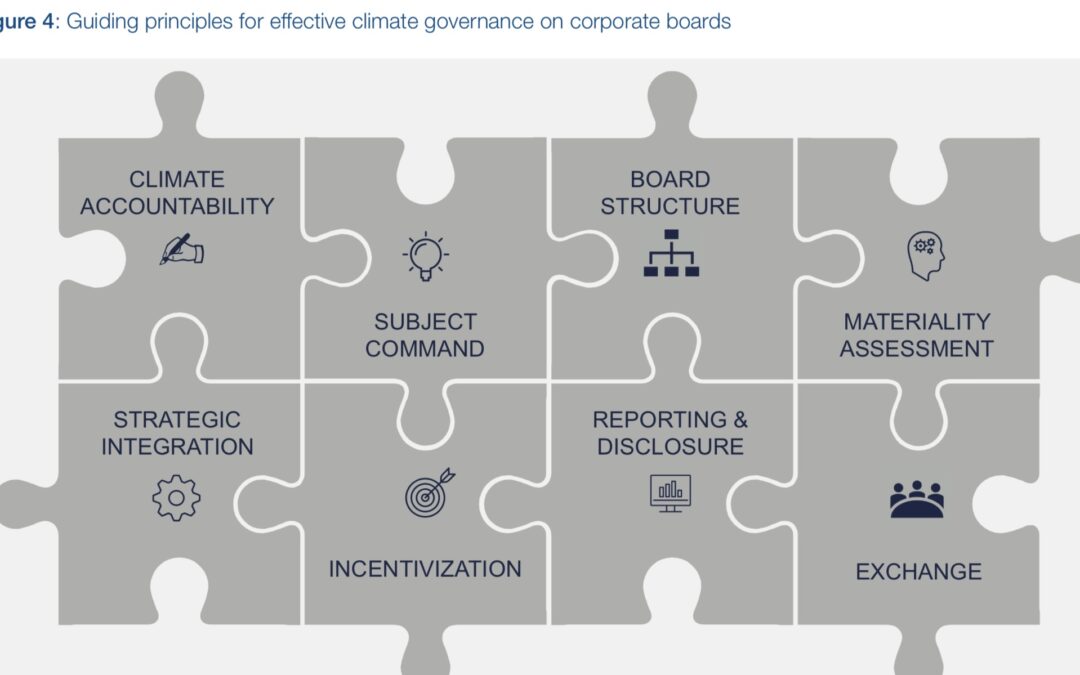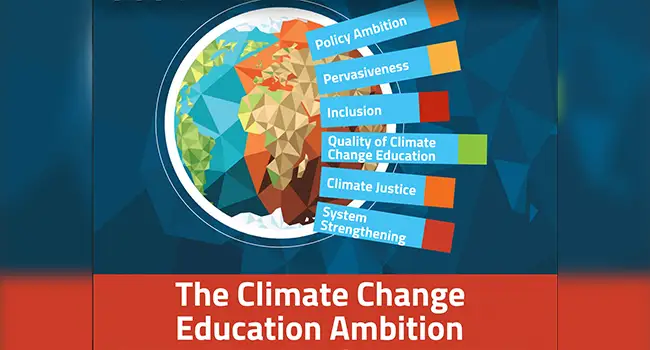Sustainability & Climate
Sustainability & Climate
Together we can make an impact that matters
The decisions we make today can impact the quality of life for the generations to come. A better future is entirely possible, but it will require a profound and lasting change in attitudes and behaviors. And it will depend on sharing knowledge and experience more broadly than ever before. Organizations like Deloitte helps to make progress on their journey toward long-term sustainability and value creation.
Together, let’s reimagine the way we work – and build vibrant economies that are sustainable well into the future.
Deloitte recently announced that it has begun to roll out a new climate learning program for all 330,000 of its people worldwide. A first-of-its-kind among major global organizations, the program aims to inform, challenge and inspire Deloitte people to learn about the impacts of climate change and empower them to confidently navigate their contribution to addressing climate change by making responsible choices at home and at work, and in advising our clients.
In order to reduce carbon emissions and mitigate the worst effects of climate change, the world needs an ecosystem of public and private actions that can help mobilize and enact collective change, which includes the business community and their employees.
This is what is needed to be followed by all business companies big or small to create awareness, advocate and take collective action to help in implementing the Global Goals. Similar kind of actions implemented below by Deloitte can be followed :
By increasing climate literacy and building the skills required to address climate change, this new learning program, developed in collaboration with World Wildlife Fund (WWF), is designed to engage all Deloitte people around the world on the impacts of climate change, inform them about how Deloitte is responding to the climate crisis, and inspire Deloitte people to take action.
“To address climate change, we need to understand it. Through dedicated learning, we can help make the right choices necessary to combat the crisis,” says Deloitte Global CEO. “Deloitte’s climate learning program is a powerful tool to unlock the climate ambition of our most valuable asset and superpower—our people. By educating and inspiring all 330,000 of us, we can help drive collective action at the scale required to help address climate change.”
The digital learning program comprises of a module which features videos, interactive data visualizations, and personal testimonials from dedicated Deloitte people taking climate action around the globe. And it is complemented with a dynamic global learning platform of comprehensive climate content in a variety of mediums to increase climate literacy. As the training is rolled out over the next six months, it will mark the next step of a collective journey Deloitte is embarking on to address climate change and build a culture of climate consciousness and action.
“Climate change brings global impacts that demand global solutions. But we also know that companies have a big role to play in driving progress, and that the actions and voices of their employees really matter,” says Carter Roberts, President and CEO of World Wildlife Fund. “Leading companies today are not only setting science-based targets to slash emissions and drive progress through their supply chains. They’re also engaging their customers and employees to make smarter choices and build momentum for broader societal progress. This new initiative from Deloitte taps into that trend and aims to bring it to scale.”
Featuring spoken-word poetry and engaging video content that takes viewers on a cross-continent journey, Deloitte’s novel learning program seeks to inspire. The learning goes beyond stats and figures about climate change to immerse Deloitte people in how the world is changing, what it means for communities around the globe, and how they can take action to help. Through an interactive and of-the-moment module, as well as a complementary learning channel that will be updated with the latest science and information, Deloitte is fostering a much-needed climate dialogue among its people globally.
The new program builds on Deloitte’s climate and sustainability initiative globally, WorldClimate. Launched in September 2020, this strategy outlines Deloitte’s commitment to achieve net-zero greenhouse gas emissions by 2030, promotes “green” operations across all its regions, educates and empowers Deloitte people around the world to become advocates of proactive climate action, and engages a broader ecosystem to create solutions that facilitate the transition to a low-carbon economy.
“It is time for businesses to change the way they operate. For companies to build long-term sustainable value for all stakeholders, they must do their part to build an equitable and sustainable future. With a company-wide climate learning, businesses can develop a culture of sustainability and climate-conscious thinking at the very core of their work”, adds Renjen.
For more than 20 years, Deloitte has helped its clients build climate action strategies into their operations and mitigate the risks that come with a warming world. Deloitte works with clients to build capabilities – from measuring impacts, to scenario planning and stress testing, to reporting on sustainable achievements and building a more inclusive workforce.
Deloitte helps businesses and industries anticipate the operational and strategic changes needed, whether that is through accessing responsible finance, forming decarbonization strategies or setting clear carbon measurement and reporting, or providing advice around how to enter new markets, accessing incentives, or setting net-zero targets, among a range of other areas.
Learn more about Deloitte’s climate committments:
- Fostering a Net-Zero Future: Deloitte Expands Commitments with the Climate Group
- Deloitte environmental goals validated by Science Based Targets initiative
- As part of the World Economic Forum’s (WEF) Alliance of CEO Climate Leaders, Deloitte Global CEO, Punit Renjen, joined with over 70 CEOs in publishing an open letter urging world leaders to support “bold and courageous commitments, policies and actions” ahead of the G7 summit.
- Deloitte works with WEF International Business Council (IBC) to lead and promote the adoption of a common set of ESG reporting metrics to support the ability of companies to measure value creation factors, increase transparency and comparability, and drive action to enhance long-term performance.
- Click here to view the attachment :
Cargo airlines have canceled all flights in and out of the city, and more than 90% of trucks supporting import and export deliveries are currently out of action.
Shanghai produces 6% of China’s exports, according to the government’s statistical yearbook for 2021, and factory closures in and around the city are further rattling supply chains.
Sony and Apple supplier plants in and around Shanghai are idle. Quanta, the world’s biggest contract notebook manufacturer and a MacBook maker, has stopped production entirely. The plant accounts for about 20% of Quanta’s notebook production capacity, and the company previously estimated it would ship 72 million units this year. Tesla has shuttered its Shanghai Giga factory, which produced about 2,000 electric cars a day.
On Friday, China’s Ministry of Industry and Information Technology said in a statement that it sent a taskforce to Shanghai to work on a plan to resume production at 666 key manufacturers in the locked down city. Tesla executives hope they’ll be allowed to reopen their doors by Monday, ending the factory’s longest pause since its 2019 opening. The automaker has lost over 50,000 units of production thus far, according to materials reviewed by Reuters.
“The impact on China is major and the knock on effects on the global economy are quite significant,” said Michael Hirson, Eurasia Group’s practice head for China and Northeast Asia. “I think we’re in for more volatility and economic and social disruption for at least the next six months.”
The prolonged disruptions to Chinese manufacturing and shipping could help accelerate a key Biden administration initiative aimed at reducing US dependence on Chinese products and supply chains.
But the task comes with serious immediate economic repercussions.
In a report released last week, the World Trade Organization warned of a worst-case scenario involving decoupling global economies, spurred on by Russia’s invasion of Ukraine, could reduce long-term global GDP by 5%.
That’s highly unlikely given the deep financial connections between China and the US. Investment in each others’ stocks and bonds reached $3.3 trillion at the end of 2020, according to data from Rhodium Group.
“These are still very intertwined economies,” said Hirson. “That integration is not something that’s going to be easily reversed because it would be incredibly costly for the US and for the global economy.”
Still, American economic leaders believe decoupling is already underway. Oaktree co-founder Howard Marks wrote in late March that “the pendulum [has] swung back towards local sourcing” and away from globalization. Blackrock Chairman Larry Fink echoed the sentiment in a letter to the company’s shareholders. “The Russian invasion of Ukraine,” he wrote, “has put an end to globalization we have experienced over the last three decades.
In a speech to the Atlantic Council last week, Treasury Secretary Janet Yellen said the US is watching China’s political and economic connections to Russia closely. “Going forward, it will be increasingly difficult to separate economic issues from broader considerations of national interest, including national security,” she said.
While she said she hopes a “bipolar split” between China and the US can be avoided, “the world’s attitude towards China and its willingness to embrace further economic integration may well be affected by China’s reaction to our call for resolute action on Russia.”
A third of China, meanwhile, is stuck in quarantine, and its economy is suffering.
China’s recent pandemic response is likely to cost at least $46 billion in lost economic output per month, or 3.1% of GDP, according to research from the Chinese University of Hong Kong.
Analysts no longer believe that China’s 2022 target of 5.5% economic growth, the country’s least ambitious goal in three decades, is realistic. The World Bank revised its estimates for Chinese economic growth this week to 5% but noted that if its restrictive policies continue that could fall to 4%.
The economic burdens come at a politically precarious moment. This fall, Chinese President Xi Jinping will petition for a third term as the nation’s leader, breaking with the tradition of a two-term maximum.
Correction: An earlier version of this story misstated the number of people under lockdown across China.


